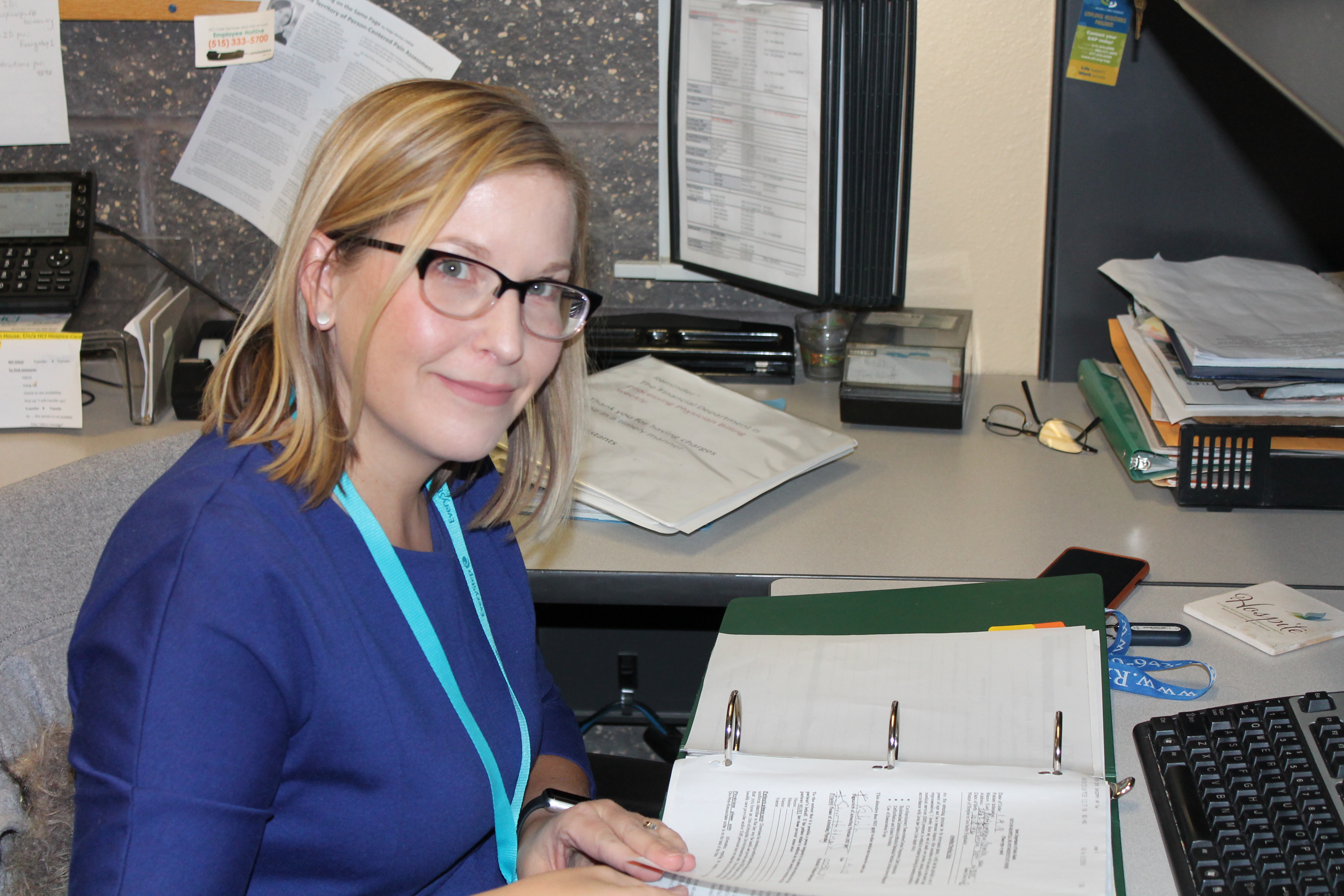November 29, 2018
A Story from Our Hospice Program: Andrea Blake

Andrea Blake always wanted to be a nurse.
In high school, while her peers were pursuing summer jobs at the mall or restaurants, she was working at an assisted living home. After graduation, she began working toward a bachelor’s degree in nursing. After moving to the East Coast, Blake began work at a teaching hospital on a unit dedicated to infectious disease and general medicine. After a bit of encouragement from a mentor, she continued her education, seeking a master’s degree in nursing.
“There’s so much hands-on learning that you continue to do after graduating and in your early years of nursing…I felt I couldn’t stop working while starting my graduate studies,” she recalls of furthering her education.
Blake’s dedication to the field is evident in the care she provides patients as a hospice nurse practitioner at EveryStep’s Kavanagh House on 56th Street.
On any given day, Blake usually starts by touching base with nurses caring for her patients, reviews medical records, and then talks with patients to corroborate medical information with their personal experiences.
“It’s nice because you can make time to have conversations with the patients, which is a luxury in health care,” Blake says, noting that she looks forward to work each day.
Still, like any other job, there are bad days too. Urgent situations sometimes distract the daily flow, as do uninformed families. Not everyone is on board with hospice or there may be a misunderstanding about what hospice care entails.
The biggest misconception about hospice care is the duration of a patient’s stay. While some families expect their loved one to pass quickly after entering care, that isn’t always the case. This perception leads to general fear and anxiety surrounding a hospice facility and tends to preemptively slow progress that can be made in hospice care by admitting sooner rather than later.
This is one of Blake’s biggest frustrations and she wants people to know that hospice care isn’t an immediate death sentence.
“Hospice isn’t just a place where you spend your last few days. I want [people] to know that we manage more than just physical symptoms,” she notes, adding that she treats her patient’s symptoms to the point where they are comfortable, but also provides care that can sometimes leads to genuine improvement and rehabilitation.
Blake doesn’t view her clients as a single patient. She views them as a unit – the family and the patient together. They are all involved in the whole process of care, dying, and eventually, grief. This is where EveryStep, and its staff members place their focus.
“This particular job, more than any of my previous registered nurse or nurse practitioner rolls, has required interpersonal communication…a lot more time talking with patients and families,” Blake says.
Blake has seen first-hand what kind of effect this has on the patients and the families. She uses this method to develop a meaningful and peaceful process that families and patients can move through together.
“You know, while we may be busy and it may be hard.. it really is worth it in the end,” Blake says.
Thanks in part to staff members like Andrea Blake, EveryStep was recently named as a Des Moines Register Top Workplace for 2018. If you would like to join the EveryStep team visit our career website to learn about job opportunities.
This story is an edited excerpt of a piece written by Drake University student Josh Eiler